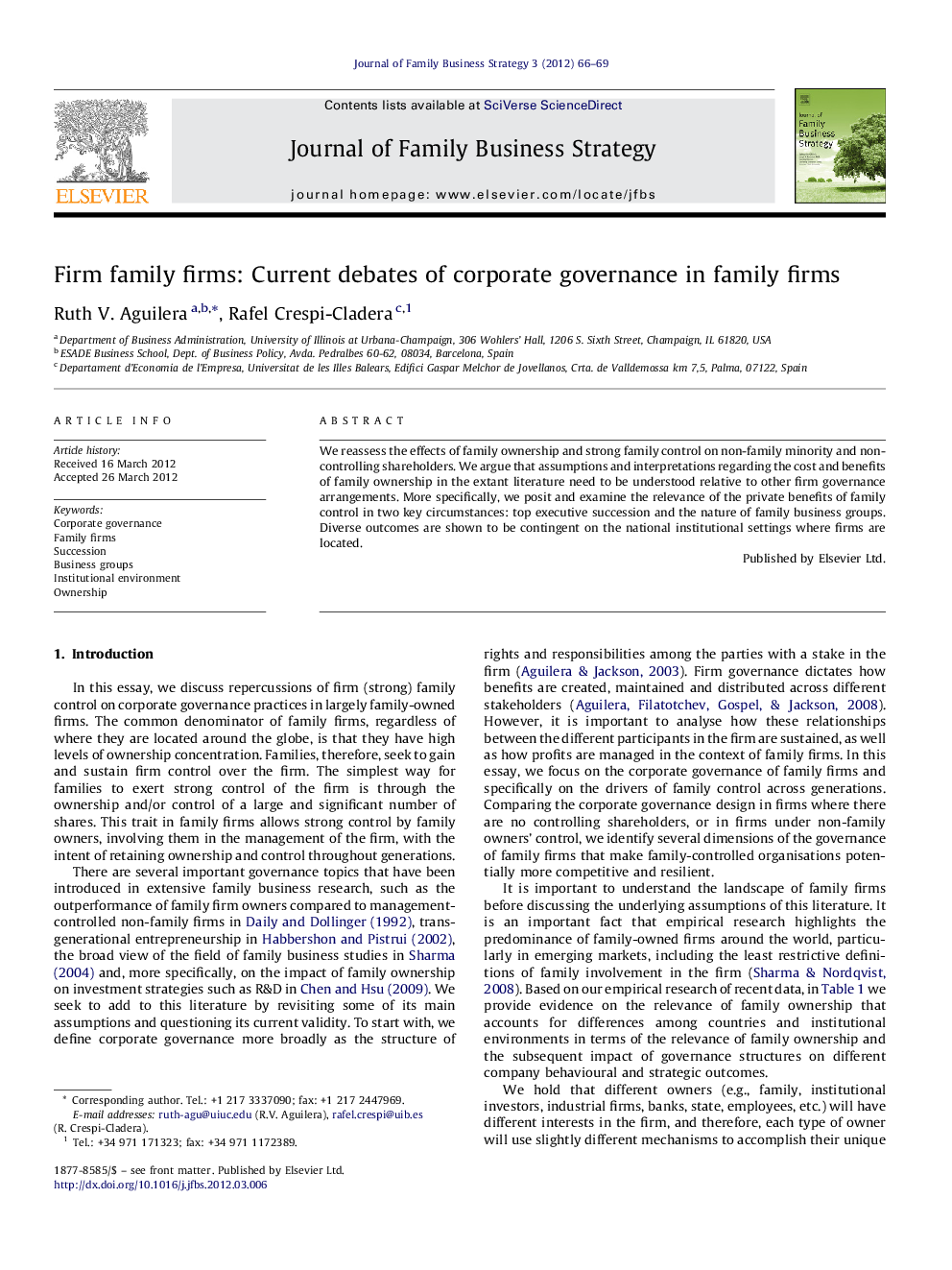| Article ID | Journal | Published Year | Pages | File Type |
|---|---|---|---|---|
| 1020023 | Journal of Family Business Strategy | 2012 | 4 Pages |
We reassess the effects of family ownership and strong family control on non-family minority and non-controlling shareholders. We argue that assumptions and interpretations regarding the cost and benefits of family ownership in the extant literature need to be understood relative to other firm governance arrangements. More specifically, we posit and examine the relevance of the private benefits of family control in two key circumstances: top executive succession and the nature of family business groups. Diverse outcomes are shown to be contingent on the national institutional settings where firms are located.
► The private benefits of family control do not always have to be detrimental to corporate performance. ► Succession of company leadership in favour of a management professional as opposed to a member of the controlling family who is a familial heir is not necessarily more effective. ► Family business groups can have efficient organisational structures along similar to non-family private investors. ► The previous assertions are contingent on the institutional environment.
